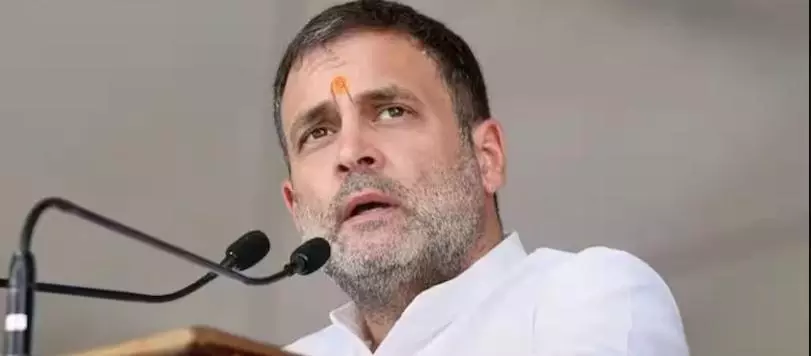
Adani and his group buying governments
text_fieldsA new scandal involving Gautam Adani, a prominent Indian industrialist and a close associate of Prime Minister Narendra Modi, has come to light. Adani and his group are accused of using their political influence to engage in fraudulent activities. The New York court has indicted Gautam Adani and his nephew Sagar Adani for allegedly bribing Indian government officials to secure solar power contracts in various Indian states and for misleading American investors about these activities. Following this, the court has issued an arrest warrant, stirring up a new controversy in Indian politics. The case provides a clear picture of how influential businessmen operate within the corridors of power to further their agendas. It is significant that this revelation comes at a time when Adani was planning to raise $600 million from the US stock market. The core of the allegation is that Adani Group paid approximately ₹2098 crore in bribes to high-ranking officials in Andhra Pradesh, Odisha, Jammu and Kashmir, Tamil Nadu, and Chhattisgarh to procure solar power contracts at inflated prices. It is questionable for a company with such a track record to be raising investments in the country. The charges against Adani and his nephew are based on a loophole in US federal law that prohibits private companies from bribing foreign government officials for commercial purposes. The New York court has presented substantial evidence to prove that Adani and his group concealed these lobbying activities while raising investments, which is a violation of US anti-corruption laws. Following the revelation, Adani Group's shares plummeted in the Indian stock market. According to reports, the combined market value of Adani Group companies dropped by ₹2.25 lakh crore to ₹12 lakh crore on Thursday.
Even though the market showed some revival on Friday, the Adani Group cannot take comfort since this is likely to continue as a controversy in the coming days and the revelations in the court proceedings have severely damaged the group's credibility. Moreover, Kenya has announced that it is cancelling the contracts signed with the Adani Group. A similar approach from other countries would also be debilitating. In addition to all this, there is also a possibility that this will develop into a political issue in the coming days. Rahul Gandhi's statement demanding the immediate arrest of Adani indicates this. As the winter session of Parliament is set to begin on Monday, the opposition is united against the BJP on this issue. Earlier, the opposition had demanded a joint parliamentary committee inquiry against Adani in the wake of the Hindenburg controversy. The same demand is likely to be raised in the next parliamentary session.
This is the third revelation of Adani's fraud in two years. The Hindenburg report released in January 2023 was about the 'artificial shares' created by Adani and his associates and 'accounting fraud'. However, Adani and the Central government, which supported him, were able to defend themselves to some extent by citing the credibility of Hindenburg, which itself operates in the stock market, and claiming that it was just an allegation. Approximately six months ago, the Organized Crime and Corruption Reporting Project (OCCRP), a consortium of international investigative journalists, came out with another revelation. They released evidence that those associated with the Adani family had set up shell companies in the African island nation of Mauritius and secretly invested billions of dollars in listed company shares. This report was considered more serious and evidence-based than the Hindenburg report. The findings clearly showed how Vinod Adani, the brother of Gautam Adani, the head of the Adani Group, along with his business partners and friends, manipulated the share value of the Adani Group. The report revealed the Adani Group's clandestine manoeuvres to artificially inflate the asset value of the group in the stock market, circumvent Indian regulations, and thereby launder black money. Now, a court in a country has released evidence that the Adani Group had bribed the government to further their business interests. It's astonishing that our government remains unfazed by all these revelations. They have now resorted to the most trivial counter-accusation, claiming that bribes were paid to opposition-ruled states. The reason for this is obvious. When Modi came to power in 2014, the Adani Group's asset value was half a trillion dollars; it has now exceeded 1.1 trillion dollars. This growth, which is unparalleled for any other businessman in India or even the world, was possible for only Adani. And that is what is called crony capitalism.


























